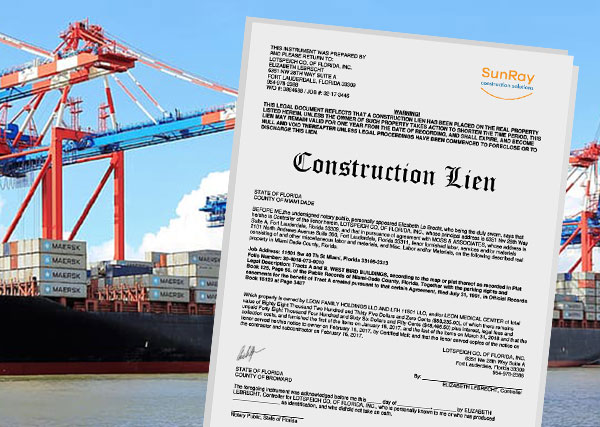Navigating the Miller Act in 4 Simple Steps
Learn the ropes of the Miller Act for federal project claims, safeguarding your right to payment in government-owned endeavors.
Last updated:
Dec
15
,
2025
Published:
Oct 18, 2024
2.5 Mins
Read
Are you involved in projects owned by the federal government? Understanding the Miller Act and how it can protect your right to payment is crucial.
In this blog post, we'll explore thoroughly what the Miller Act is, when and how it applies, and the steps you need to take to assert a Miller Act claim for federal projects.
Understanding the Miller Act
The Miller Act is a federal law that grants payment protection to contractors and suppliers involved in projects owned by the federal government. It operates similarly to lien and bond laws in most states. The Act allows you to make a claim against the bonded contractor to ensure you receive the payment you are owed for your work or supplied materials.
When Does the Miller Act Apply?
The Miller Act applies specifically to work performed on property owned by the federal government. For projects exceeding $100,000, the Miller Act provides protection for contractors and suppliers, ensuring they can seek compensation for their contributions.
Do You Have Rights under the Miller Act?
To determine if you have rights under the Miller Act, consider the following steps:

Step 1: Identifying Miller Act Rights
Understanding whether you have rights under the Miller Act is the first crucial step.
- Prime contractors claim against the public entity: If you are the prime contractor with a contract directly with the federal government, your claim is against the public entity.
- Making claims under the Miller Act: If you have a contract with the prime contractor, your claim is against the prime contractor’s bond, making you a first-tier subcontractor. Material suppliers to the prime contractor also have rights under the prime contractor’s payment bond.
Step 2: Sending the Miller Act Notice
- First-tier subcontractors and material suppliers need not send notice: You need not send a Miller Act Notice or Notice of Nonpayment, but you should because it will allow the contractor to know that you intend to make a claim under their bond.
- Second-tier subcontractors and material suppliers must send the Miller Act notice to the bonded prime contractor: Second-tier subcontractors and material suppliers to those prime contractors need to send a bond claim which is a Notice of Nonpayment within 90 days of their last work on the job. So, if you are a second-tier subcontractor or are a material supplier to that subcontractor, you need to send this Notice of Nonpayment.
- No supplier-to-supplier rights: Understand that suppliers to suppliers have no rights. If you are a supplier providing materials to another supplier, you do not possess rights under the Miller Act. The Notice of Nonpayment must specify the amount owed at the time of the claim. It is essential to include information about the party you contracted with, as this allows the contractor to determine if they have indeed paid that party.

Step 3: Proper Notice and Service
- Service via certified mail: Service of the Miller Act Notice is typically done via certified mail, return receipt requested, providing proof of timely delivery.
- Sending notice to the surety and contracting party: Copies of the Notice of Nonpayment should be sent to the surety and any other party you contracted with.
Step 4: Initiating Legal Action
Filing a suit: If necessary, legal action should be initiated no later than one year after the last work was performed. However, it cannot be filed sooner than 90 days after your last work.
Protect Your Rights with a Notice to Owner
Sending a notice to owner is the first step to secure payment on construction projects. Learn how a notice to owner Florida helps protect your lien rights and ensures you get paid.
Protect Your Payment Rights with Florida’s Most Trusted Notice & Lien Services
Notice to Owner – Secure your lien rights early. File your NTO now!
Notice to Owner Florida – Stay compliant with Florida deadlines. Send your NTO today!
Mechanics Lien Florida – Get paid faster. Start your Florida lien process now!
Conclusion
Understanding the Miller Act and how it can protect your rights on federal projects is vital for ensuring you receive the compensation you deserve for your valuable contributions. By following the appropriate steps and timelines outlined by the Miller Act, you can effectively assert your claim and protect your interests in federal projects.
Ready to streamline your legal and compliance needs? Discover the efficiency, accuracy, and convenience of SunRay. Click here to explore our services and transform your business!












